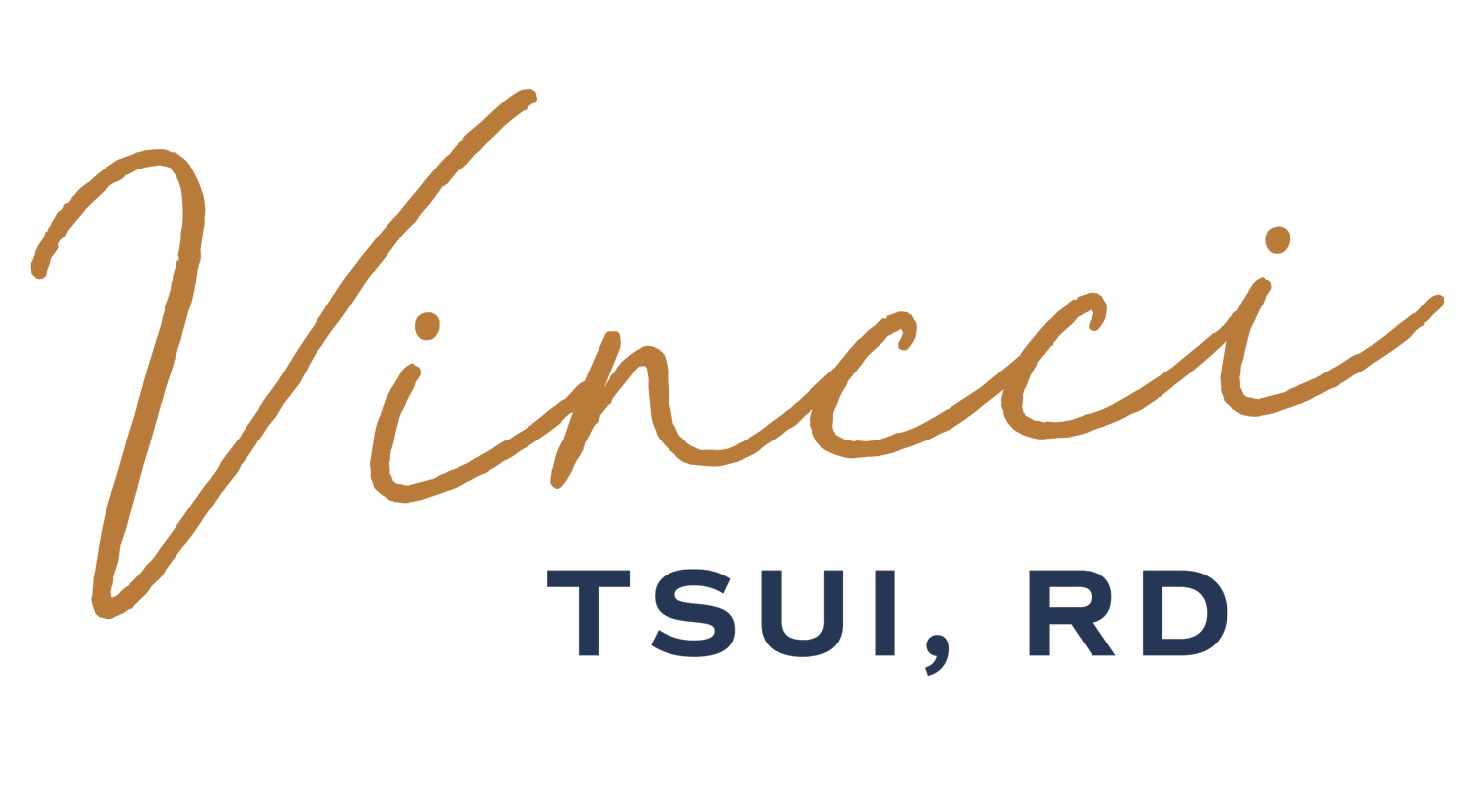The Power of Language & Identity in Food & Eating
One of the most common complaints that I hear from clients is, “I know how what I need to do, I just need to do it.” Most people have a good handle on basic nutrition (though sometimes there is some myth-busting to do), and my work has become less about nutrition education, and more about helping people make their good intentions more than just intentions.
Here’s a strategy that’s come up in a few of my client sessions lately that I thought I would share.
How We Talk About Food and Ourselves Matters
Cognitive behavioural therapy (CBT) is an approach to psychotherapy that proposes that our thoughts, emotions and behaviours are all connected. In other words, while we don’t have direct control over our emotions (for example, we don’t feel happy or sad out of nowhere), we can control them through our thoughts (for example, perceiving a situation as positive or negative) and behaviours. (Yes, you can “fake it till you make it”!)
How does this apply to nutrition and eating?
Eating is a behaviour, so in the context of CBT, it can be impacted by our thoughts and our emotions. I’m sure many people can relate to phrases like, “I’m an emotional eater” or “I must have something sweet after dinner”. Sometimes these thoughts and emotions are so strong that in a way, they become a “part of us”. One of my clients shared that since everyone knows about her love for chocolate, she often receives chocolate as a gift and feels that she is expected to eat it when it’s around. It almost feels like it’s part of her identity.
When something becomes so intertwined with who we are, it can be difficult to change even if we want to. It’s almost like we need to grieve the loss of this part of our life before we can move forward. This can be true with giving up the diet mentality and the focus on weight loss – if you have been trying to lose weight for most of your life, it can be difficult to give up dieting even though logically, you know that dieting doesn’t work and you really want to learn to love and trust your body as it is. In essence, you are telling yourself to give up a certain way of living, thinking and connecting with others. Put that way, it makes sense that you’d rather run back to the familiarity of counting calories and points, rather than taking the leap.
“When something becomes part of who we are, it can be difficult to change even if we want to.”
Using Language and Identity to Help You Move Forward
Think of an eating or lifestyle habit that you are trying to change. Now, dig deep and see if there are limiting beliefs that you are holding on to that might be getting in the way of making that change. It might feel silly to admit that giving up emotional eating might mean actually dealing with your emotions, or that giving up snacking at night might mean losing connection with a loved one, but know that your concerns are legitimate – otherwise, what’s stopping you from moving forward?
Here comes the tricky part: What happens when you turn that thought around?
Instead of saying, “I’m an emotional eater”, what happens if you say, “I’m not an emotional eater” or “I can satisfy my emotions without food”?
Instead of saying, “I want to lose weight”, what happens if you say, “I don’t need to lose weight”
Pay attention to how it sits with you simply saying it or thinking it for the first time, then when you feel ready, try living it and see what happens.
Remember this exercise is not necessarily meant to “fix” anything, but offer a different perspective and way of thinking that may or may not precipitate into your eating behaviours.
Further Reading
Want to learn more about how your thoughts can impact your emotions and behaviours? I loved this post by fellow HAES® dietitian Emily Fonnesbeck on self-talk.
Are you giving up dieting and weight loss and find yourself grieving? This post by HAES® coach Meredith Noble has some practical advice for each stage.
Have you noticed whether or not your thoughts, emotions or self-talk affect how or what you eat? Please share your insights in the comments below.

